Our History
From our early days to our current status as a leading institution in the field of accreditation, this page offers a comprehensive look at the journey that brought us to where we are today.

The Union Européenne des Médecins Spécialistes (UEMS) was founded in 1958 with the aim of representing the interests of specialist doctors at an international level. The UEMS is a non-governmental voluntary organisation whose members are the national medical organisations that represent medical specialists in the European Union and in associated countries.
In January 2000 the UEMS established the European Accreditation Council for Continuing Medical Education (EACCME®) with the aim of encouraging the highest standards in the development, delivery and harmonisation of continuing medical education (CME) and, later, of continuing professional development (CPD).
The purpose of the EACCME® was to provide accreditation of international CME in Europe and to facilitate the recognition of credits between the various countries in Europe. In order to reach this goal, the UEMS-EACCME® signed agreements of cooperation with countries in Europe, and also outside of Europe.
Our journey
Establishment of EACCME® and adoption of LEE
criteria by UEMS Council
Start of EACCME® accreditation activities
Implementation of the accreditation criteria
for E-Learning Materials (ELM)
First EACCME® conference on CME/CPD in Brussels
Implementation of revised criteria for Live
Educational Events (LEE)
Adoption of EACCME® 2.0 including new forms of
CME/CPD activities
Implementation of EACCME® 2.0 and launch of the
new EACCME® platform
Adoption of EACCME® 3.0 and implementation of
EACCME® 3.0 and launch of the new EACCME® website and platform
Our Secretaries-General
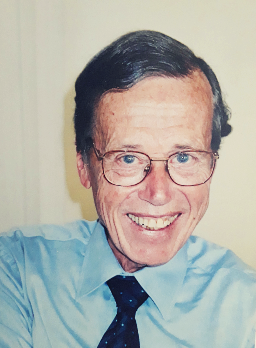
Dr Robert PEIFFER
(Belgium)
UEMS Secretary-General from 1990 to 1999.
1997: visit from a delegation from the American Medical Association (AMA) to present the American accreditation system and discuss international collaboration.
1999: creation of the European Accreditation Council for CME (EACCME®) by the UEMS Council.
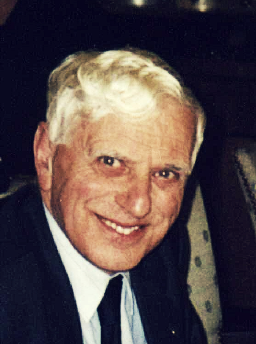
Dr Cees LEIBBRANDT
(The Netherlands)
UEMS Secretary-General from 1999 to 2002.
1999: drafting of the first EACCME criteria for the accreditation of live educational events, known as D9908.
2000: start of the EACCME activities.
Basel Declaration – UEMS Policy on Continuing Professional Development (D 0120)
2002: signing of an agreement of mutual recognition of credits with the American Medical Association (AMA) for live educational events (LEEs).
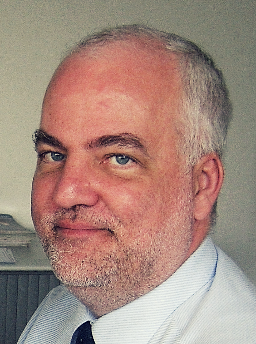
Dr Bernard MAILLET
(Belgium)
UEMS Secretary-General from 2003 to 2011.
2007: creation of the EACCME Taskforce under the chairmanship of Dr Edwin Borman (purpose: determining the strategic direction for EACCME accreditation, and working for the implementation of necessary developments).
2010: inclusion of e-learning materials in the agreement of mutual recognition of credits with the American Medical Association (AMA).
2011: Signing of an agreement of mutual recognition of credits with the Royal College of Physicians and Surgeons of Canada (RCPSC) for live educational events (LEEs).
2011: First UEMS Conference (Brussels, 18th November 2011) - “The accreditation of CME-CPD in Europe – Contributing to higher standards in medical care”.
Signing of agreements of collaboration with several European countries.
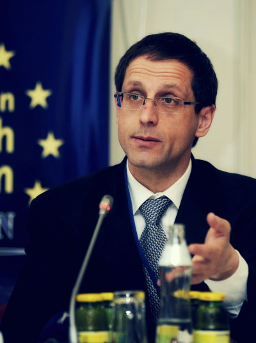
Dr Edwin Borman
(United Kingdom)
UEMS Secretary-General from 2012 to 2014.
During his term as Chairman of the EACCME Taskforce (from 2007 to 2012):
2007: Revision of the criteria for the accreditation of live educational events (D9908/Rev.2007)
2008: Criteria for the Accreditation of E-learning Materials (UEMS 2008/20)
2011: Revision of the Criteria for the Accreditation of E-Learning Materials (UEMS 2011/20)
2012: Revision of the Criteria for the Accreditation of Live Educational Events (UEMS 2012/30)
2014: Second UEMS Conference (Brussels, 28th February 2014) – “The new criteria for the Accreditation of Live Educational Events (LEEs)”.
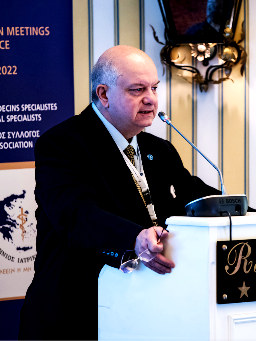
Prof. Vassilios Papalois
(United Kingdom)
UEMS Secretary-General from 2015 to 2019.
2016: Implementation of EACCME 2.0:
o Revision of the Criteria for the Accreditation of Live Educational Events (UEMS 2016/20)
- Implementation of the trusted provider status
o Revision of the Criteria for the Accreditation of E-learning Materials (UEMS 2016/21) – inclusion of new forms of e-learning materials (e-platforms, apps, e-libraries)
o Recognition of CPD/CME activities (UEMS 2016/22): recognition of new forms of activities:
- Reviewing scientific and educational material (REV)
- Publishing scientific and educational material (PUB)
- Learning by Teaching (LbT)
- Examiner in a UEMS exam
2016: Third UEMS Conference (Amsterdam, 12th November 2016) – “The Accreditation of new forms of CME-CPD activities by the EACCME”.
2018: Fourth UEMS Conference (Brussels, 23-24th November 2018) – “Conference held in conjunction with the UEMS 60th anniversary celebrations”.
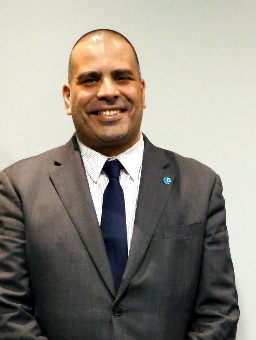
Dr João Grenho
(Portugal)
UEMS Secretary-General from 2020 to now.
2020-2022: adoption of COVID measures to help providers during the COVID pandemic.
2021: Virtual UEMS Conference (12th March 2021) - “EACCME: Facing the COVID challenge and beyond”.
2022: Fifth UEMS Conference (Seville, 11-12th March 2022) – “The Dr. Cees Leibbrandt EACCME Conference: New EACCME 2.1: Answering the Challenges of the Future”.
2023: Implementation of EACCME 3.0:
o Revision of the Criteria for the Accreditation of Live Educational Events (UEMS 2023/07) & Revision of the Criteria for the Accreditation of E-learning Materials (UEMS 2023/08)
- Inclusion of micro-learning (0.5 ECMEC®)
- New eligibility criteria (concept of co-development)
- Courses on non-consecutive dates
- New criterion: diversity and inclusion
o Criteria for the Accreditation of Blended Learning (UEMS 2023/09)
o Recognition of CPD/CME activities (UEMS 2023/10): recognition of new forms of activities:
- Reading scientific and educational material;
- Writing MCQs for a UEMS exam
o Revision of the trusted provider status (applicable to all types of CME/CPD activities)
Both the EACCME® and the ECMEC® are registered trademarks of the UEMS and cannot be used without the prior authorization of the UEMS.
